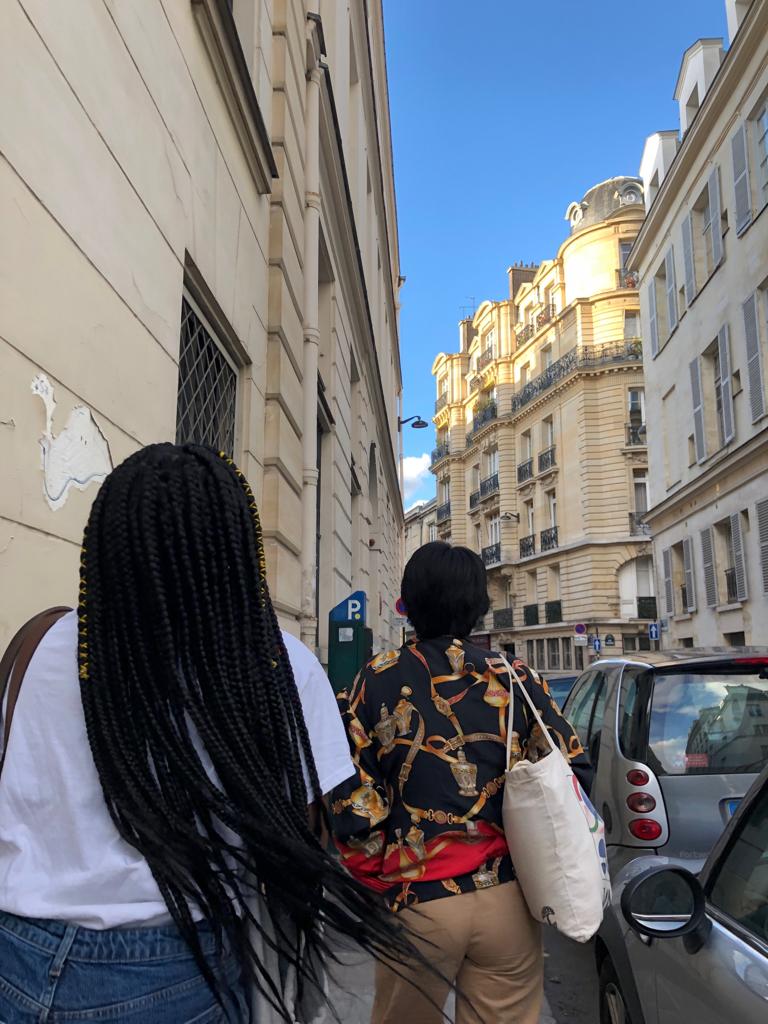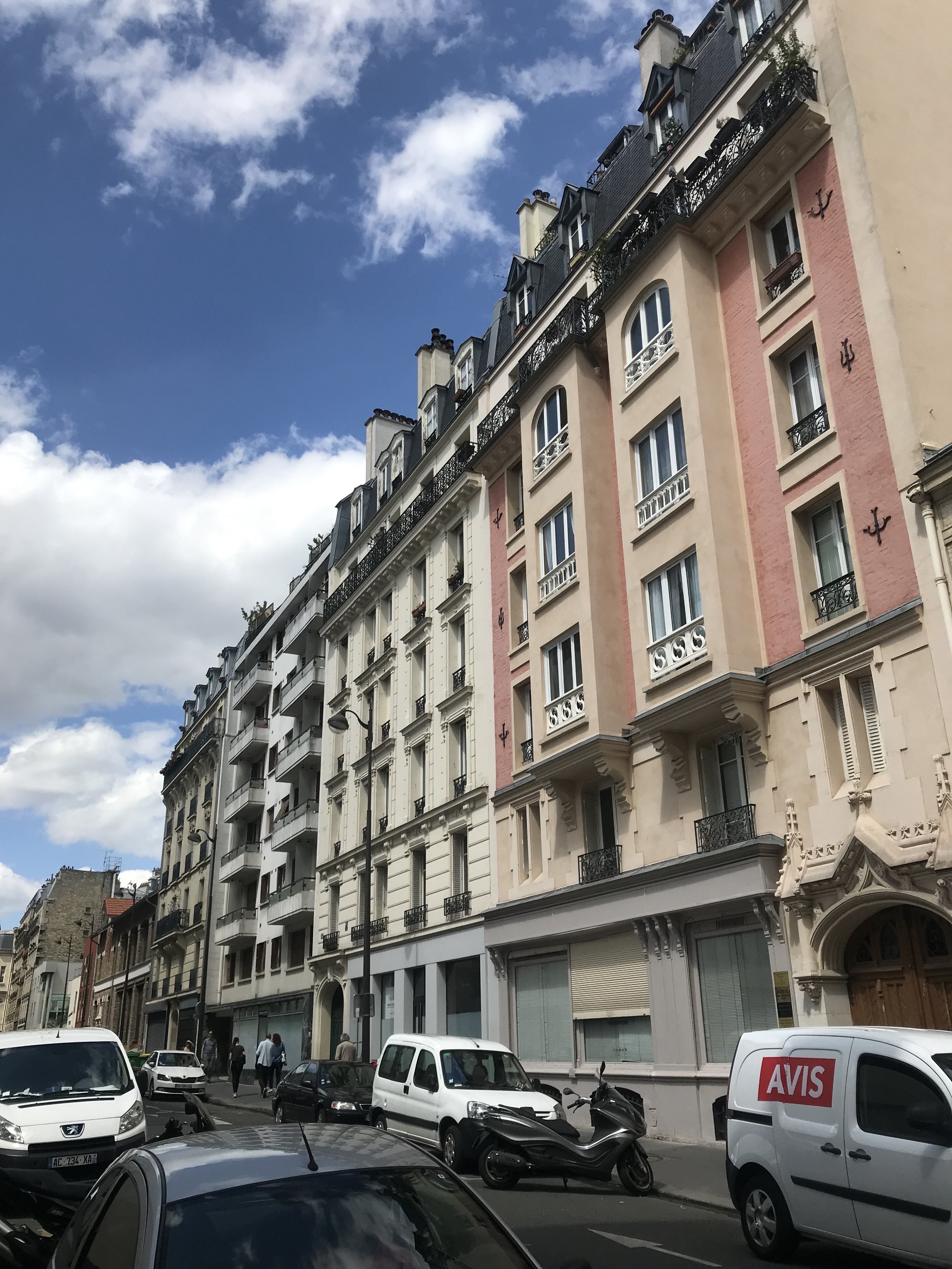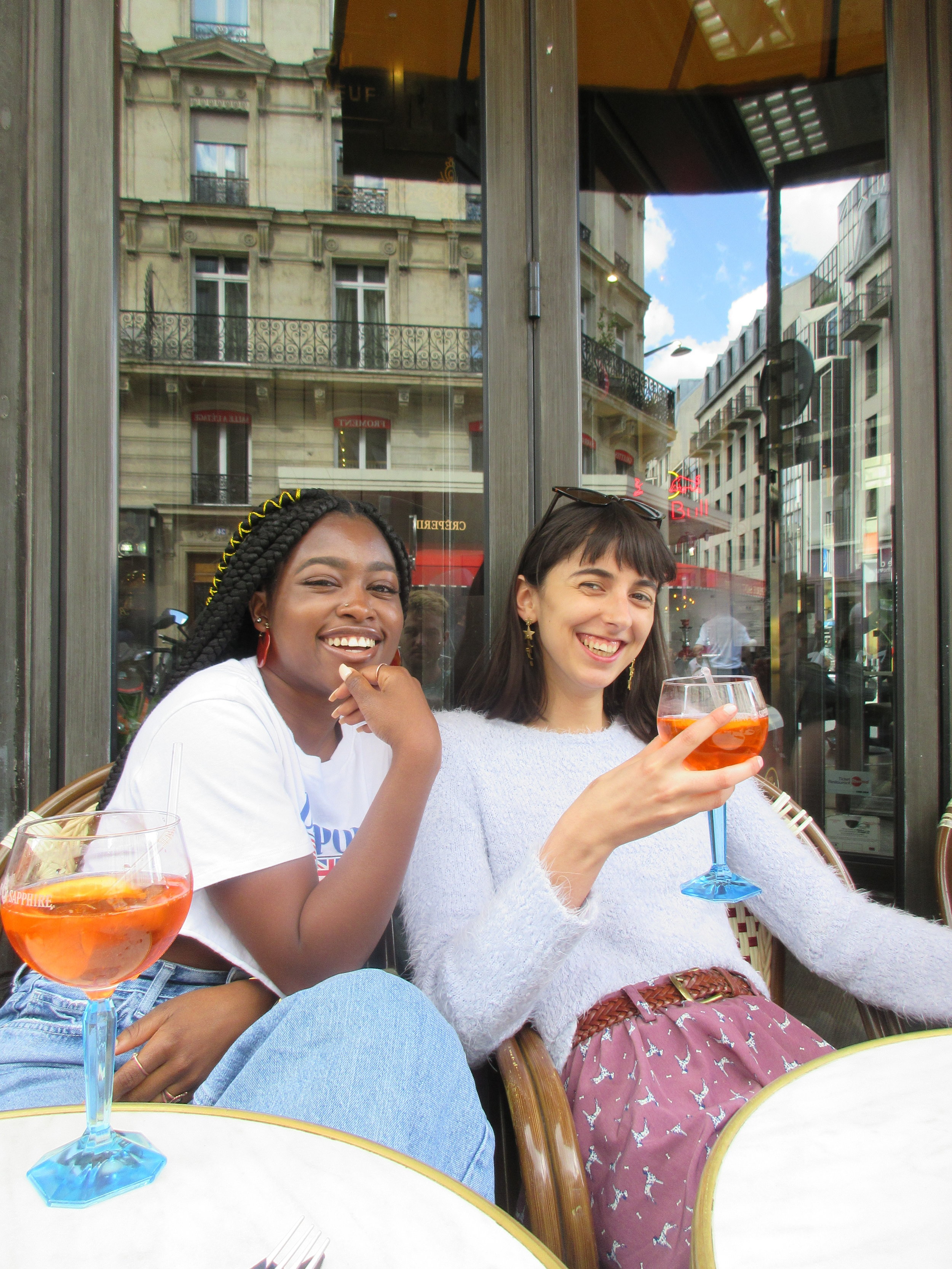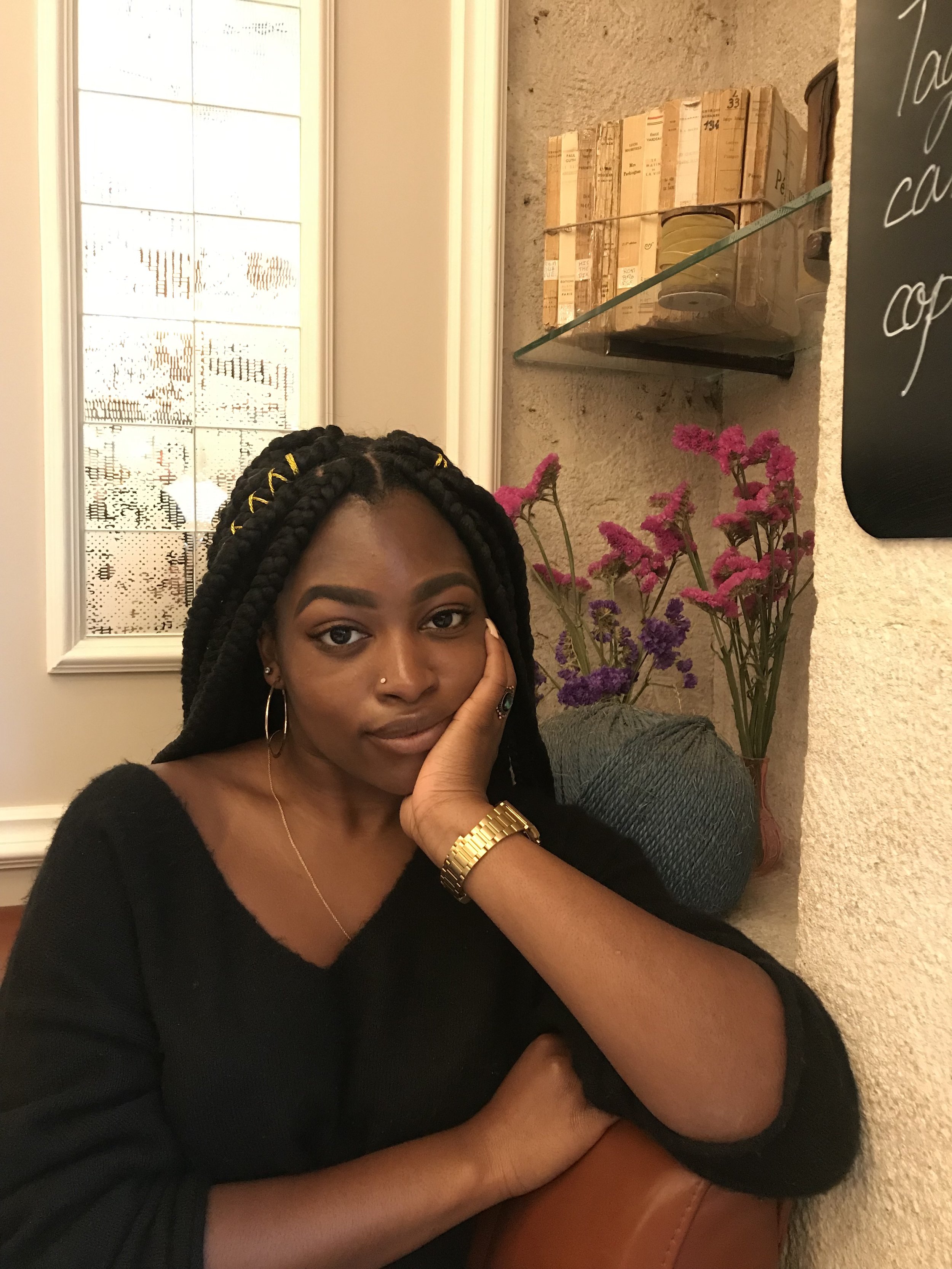THANK YOU, MR. BALDWIN
I am terrified at the moral apathy, the death of the heart which is happening in my country. These people have deluded themselves for so long that they really don’t think I’m human... And this means that they have become, in themselves, moral monsters.
-James Baldwin
In an attempt to live, James Baldwin left Harlem for Paris in 1948. In his mind, he believed staying in the US would lead to his death whether by suicide or by murder at the hands of racists. While Baldwin searched for an escape in Paris, I searched for a summer of luxury. For a month, I studied his work and life in Paris. I imagined reading Giovanni’s Room in the jardin du Luxembourg and drinking wine under the Eiffel Tower. I didn’t anticipate the heaviness in my chest after every class or how the language of Baldwin would influence the way I moved throughout the city.
As a first generation college student, it meant the world to me to receive grants to cover my expenses abroad. I wanted everyone to know I was living my best life in Paris. I carefully thought out all my Instagram posts: rearranging my meals to angle my glass of rose or capturing the arch de triumphe during sunset, making sure nothing messed with its symmetry. At first, I believed that nothing could make me think Paris wasn’t one of the most beautiful places in the world. I regularly found myself at different gardens, watching young couples cuddle on the grass, and smoke their skinny cigarettes. Cafes lined each block, flowing into rows of flats engulfed in vines and flowers spilling out from their windows. I even loved the way the French said my name, as if it was apart of their native tongue. Then, I remembered why I was there and turned my attention back to Baldwin.
In “A Question of Identity,” Baldwin states, “[The American student] cushions himself...against the shock of reality, by refusing for a very long time to recognize Paris at all, but clinging instead to its image.” Baldwin saw how Americans were focused on the illusion of a foreign place, rather than its actuality. We often believe many countries are more beautiful than our own, that we won’t face the same problems as we do back home. I definitely had this same mindset. Before I left the states, I was desperately eager to escape New York. I grew tired of the terrible weather, the purgatory of subways, how suffocating it can be to live here. I thought Paris would have endless sunshine and picturesque neighborhoods full of people with sexy accents (the French are truly gorgeous). Nevertheless, it rained the entire first week I arrived. Baldwin was trying to teach me something I wanted to remain oblivious to, that fantasies are only meant for those who can afford to live in them.
The illusion of Paris doesn’t end there. Because France likes to push the idea that they are past-race, lots of Black people thought they could escape racism by moving there. Baldwin quickly understood this was not the case. I was shocked when I read his essays about the different lived experiences between American Black people and Black Africans. There are tons of Africans living in Paris, especially from West and Northern Africa. The sad truth is that some French people view Africans as unwanted immigrants. As a dark-skinned girl, many Parisians assumed I was African until I opened my mouth. For a moment, I enjoyed it because it made me feel like a local. That was until I saw the discrimination Baldwin spoke of first-hand. One day, I walked into a coffee shop and the room fell silent. The barista coldly asked me what I wanted in French. Once I responded by asking if he spoke English, he happily said, “Oh, you’re American. Nice.” I didn’t understand the weight of that moment then, but it sticks with me now. I began to watch the interactions between Black Africans and other Parisians. They seemed to exist in two separate worlds, staying out of the other’s way and having very little contact. Because many assumed that I was also African, I never got the same eyerolls as other tourists. I enjoyed it for as long as I could, until I noticed how some white Parisians looked at me, as if they were trying to figure me out. I don’t even know what’s worse, outwardly violent racism or the kind you can’t readily detect.
The longer I stayed in Paris and read Baldwin, the heavier it all felt to study his work at this point in time when families are being separated, children are locked in cages, and one of the most violent and racist men ever is the leader of the “free world.” All of these emotions culminated during one class period when we watched the film, I Am Not Your Negro, which focuses on Baldwin’s decision to return to the US during the Civil Rights Movement. I thought I was used to seeing videos of Black people being beaten on the street, spit on, and chased by dogs. It’s broadcasted so often that I believed I was desensitized to it by now. Yet, watching these gruesome attacks on my people made my stomach churn each time. The room was silent for a long while once it finished. During our discussion, I wanted to say how angry it made me, that I wanted to use my voice and my art to fight back and speak up. In reality, I felt numb. I immediately wanted to push it all out of my head and not deal with it. But people who look like me don’t have that luxury.
In an interview Baldwin states, “How, precisely, are you going to reconcile yourself to your situation here and how you are going to communicate to the vast, heedless, unthinking, cruel, white majority, that you are here.” These words cut through the air for me, as someone who has made myself feel so small before because of my race. I always ask myself, what now? How do you begin to stick your foot in the door and show up for your community? This is a question I constantly struggle with. As a writer, Baldwin believed it was his job to be a witness to all the injustices occurring and ours too. It is dangerous to be a bystander during this political moment. Baldwin gave me the language to understand where I can begin in this struggle and how to use my words to let those in charge know that the world is watching. To bear witness is apart of our survival.
Baldwin told me to get off my ass, and for that I am forever grateful.








